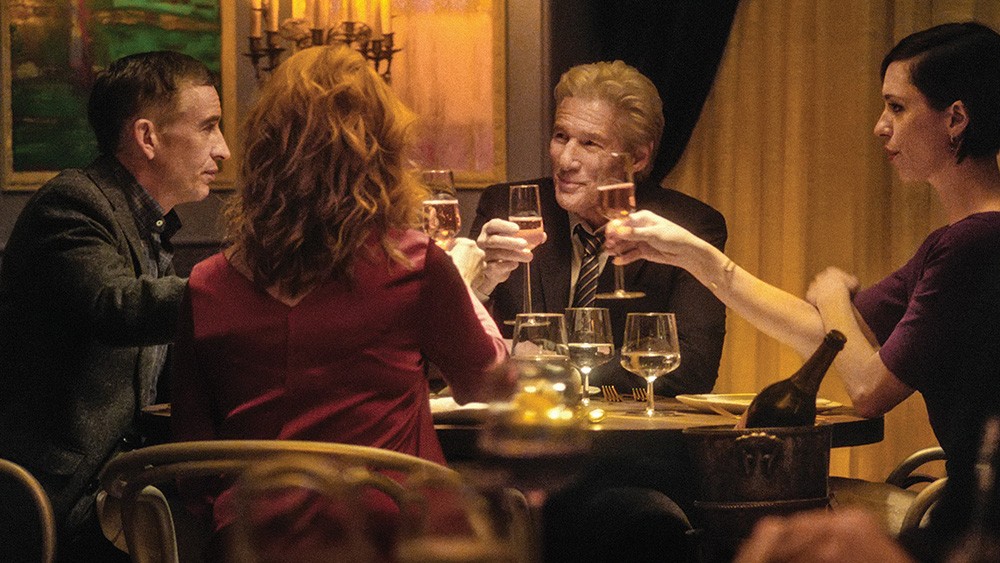The Dinner
The Dinner, 2017, 3 ½ stars
Morality: It’s what’s for Dinner
From The Orlando Weekly, May 3, 2017
Humanity is still the most satisfying film ingredient, and The Dinner serves up plenty, plus a side of morality and a palate cleanser of social commentary.
Written and directed by Oren Moverman (The Messenger, Time Out of Mind), this is the third film adaptation of Herman Koch’s 2009 Dutch novel, and the first in English. Yet despite the title and some clunky “chapter headings” that artificially divide the film into “aperitif,” “appetizer,” “main course,” etc., the film is not really about the meal. Instead, it concerns a moral dilemma that two estranged brothers and their wives face following an unspeakable crime committed by their children. Do they confess to the crime, which was captured on video, or “leave the wound alone,” as one character argues? It’s a choice between condemnation and damnation, Jean Valjean might say.
Steve Coogan (Philomena, Alan Partridge) plays Paul, a history teacher who feels the weight of both current and past worlds on his shoulders. Though that weight is mostly imagined thanks to his own psychological struggles, he feels emasculated by his wife (Laura Linney), threatened by his successful brother (Richard Gere) and just plain annoyed by his brother’s young wife (Rebecca Hall). So when the four gather in a posh restaurant to discuss how to extricate their teenage boys and themselves from the life-changing crime, their fancy meal becomes a combination of My Dinner with Andre, Dinner for Schmucks and the Last Supper.
The four excellent performances drive the film and make up for some oddities in editing and tone. Coogan is especially effective and deserves consideration for a supporting-actor Oscar nomination. His nuanced depiction of mental illness is simultaneously sad, real and even humorous, and overshadows every other element except for sound design, which combines background noise, Coogan’s “unreliable narrator” voiceover and what seems at first blush to be intrusive music. But throw in multiple flashbacks and revelatory back stories, and it all eventually congeals into a cacophony complementing the mental anguish of the four diners. This Jackson Pollack-like structure (similar to last year’s Jackie) might annoy some, but you can’t deny its disturbing beauty.
The film departs drastically from the 2014 Italian version, which was only loosely inspired by the book, and it is by no means a carbon copy of the 2013 Dutch original. For instance, it dives more deeply into mental illness, as Gere’s character is a U.S. congressman attempting to pass a health bill that addresses that very topic. “Mental health for all!” he exclaims while punching his mentally challenged brother. That ironic juxtaposition lends another dimension to the story while bringing the rift between the two siblings into an absurdly tragic focus.
After two versions of this story in the last five years, some moviegoers might be done with Dinner. But because of Moverman’s script innovations, unique sound design and eclectic editing – and Coogan’s tour de force – I recommend a third helping.
© 2017 Orlando Weekly / MeierMovies, LLC
